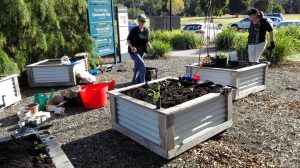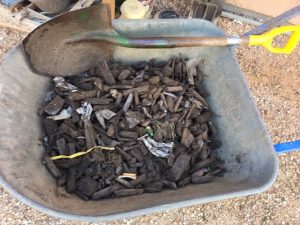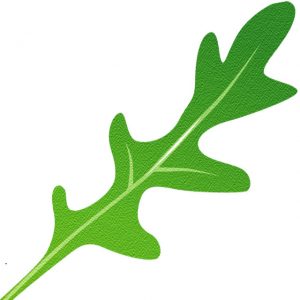Community gardening news – Hurstbridge
Pam Jenkins writes in about the wicking beds at Hurstbridge Community Hub: “Most of the plants died over the summer so we have  re-planted using the following rotation system: legumes; leafy greens and brassicas; alliums; and ‘other’. There are two additional beds for herbs. As in Diamond Creek, we planted numerous edible flowers among the vegetables, partly to assist with pest control and partly just to look pretty. In case you want to taste test the flowers, alyssums, pansies, calendulas and nasturtiums are all edible (snap dragons are not known to be poisonous but they don’t taste nice).
re-planted using the following rotation system: legumes; leafy greens and brassicas; alliums; and ‘other’. There are two additional beds for herbs. As in Diamond Creek, we planted numerous edible flowers among the vegetables, partly to assist with pest control and partly just to look pretty. In case you want to taste test the flowers, alyssums, pansies, calendulas and nasturtiums are all edible (snap dragons are not known to be poisonous but they don’t taste nice).
“I would like to thank my fellow volunteers for all their input, ideas, seedlings, seeds, work and company. I would also like to thank Local Food Connect for their funding, Nillumbik Nursery for their quality seedlings, and Allira Haeusler for re-hydrating the beds. If you would like to become involved, or to find out more with helping at Hurstbridge Community Hub, please join the Facebook page, Friends of the Hub Edible Garden.”
Are there bits in your compost?
 Evan Gellert writes in: “I recently bought some unbagged ZooGro composted soil conditioner from my local nursery and it had solids in it (e.g. timber chunks, plastic bottle remnants, plastic mouldings, jute and bones – see picture). The bagged equivalent from GrowBetter doesn’t have such bits. I wrote to the nursery to ask them why. They replied that, whilst the unbagged and bagged material come from the same source, the bagged material is then processed by GrowBetter to screen/filter the product for bits and to get it down to the fine state in the bags. They also said that both the bagged and unbagged material has been through a ‘hot rot’ machine and is therefore safe for use in the garden.”
Evan Gellert writes in: “I recently bought some unbagged ZooGro composted soil conditioner from my local nursery and it had solids in it (e.g. timber chunks, plastic bottle remnants, plastic mouldings, jute and bones – see picture). The bagged equivalent from GrowBetter doesn’t have such bits. I wrote to the nursery to ask them why. They replied that, whilst the unbagged and bagged material come from the same source, the bagged material is then processed by GrowBetter to screen/filter the product for bits and to get it down to the fine state in the bags. They also said that both the bagged and unbagged material has been through a ‘hot rot’ machine and is therefore safe for use in the garden.”
Another video about Kat Lavers’ garden in Northcote
Watch the video, which is from the 19th April episode of Gardening Australia.
Recent articles by Angelo Eliades
Angelo has just published two articles on his website.
The first is entitled raised garden beds – what size is best? (Spoiler alert: the answer is 1.2 metres by 2.4 metres!)
The second is entitled why citrus fruit drops and flowers fail to develop.
Read more of Angelo’s food growing articles.
Permablitz’s hero of the month – the mushroom
“Autumn has arrived and it’s finally mushroom season! At this time of year, every walk in the forest is like a treasure hunt. You never know what beautiful, rare or even tasty treat might be hiding behind the next tree.” Did you know that native truffles make up 80%-90% of the long-footed potoroo’s diet? Read the full article.
Read more Permablitz heroes of the month.
Beekeepers: it’s time for hive beetle precautions
As some of you will remember, Jane Dyer, from Backyard Honey in Surrey Hills, wrote in a few weeks ago about the hive beetle. Here’s a reminder: “Melbourne beekeepers may be aware that the hive beetle is becoming more common. One solution to help eradicate hive beetle when packing down your hives for winter is to freeze all the bee frames and boxes planned to be used again next season. Freezing frames and boxes to less than -12C for more than 6 hours will eradicate all stages of small hive beetle and wax moth.
“Backyard Honey provide both a freezing service (-17C for 3 days for hive components) and sealing service (bagged for winter storage) for hobby beekeepers during May. The costs: $20 for the first box of frames; $15 for the second and subsequent boxes; and $5 each for excluders, lids and bases.”
If interested, or for more details, email Jane.
Fun facts: rocket/arugula
 Many plants, vegetables and fruit have multiple common names, with one name being common in the UK, another in the US, and one or both in Australia. For example, pumpkin(UK)/squash(US), aubergine(UK)/eggplant(US) and swede(UK)/rutabaga(US). One such is rocket(UK)/arugula(US). Interestingly, both ‘rocket’ and ‘arugula’ appear to be derived from the same Latin word ‘eruca’, but by different routes. Rocket: from the Latin eruca through the Northern Italian ruchetta and then the French roquette to the British rocket. Arugula: from the Latin eruca through the Venetian rucola and then the Lombard arigola to the American arugula. It is actually quite common for two words which both sound different and mean different things to have the same root. For example salad/salary (from the Latin ‘sal’ meaning ‘salt’) and mortify/mortgage (from the Latin ‘mors’ meaning death). But are there any examples other than rocket/arugula, where the words come from the same root, sound different but have the same meaning?
Many plants, vegetables and fruit have multiple common names, with one name being common in the UK, another in the US, and one or both in Australia. For example, pumpkin(UK)/squash(US), aubergine(UK)/eggplant(US) and swede(UK)/rutabaga(US). One such is rocket(UK)/arugula(US). Interestingly, both ‘rocket’ and ‘arugula’ appear to be derived from the same Latin word ‘eruca’, but by different routes. Rocket: from the Latin eruca through the Northern Italian ruchetta and then the French roquette to the British rocket. Arugula: from the Latin eruca through the Venetian rucola and then the Lombard arigola to the American arugula. It is actually quite common for two words which both sound different and mean different things to have the same root. For example salad/salary (from the Latin ‘sal’ meaning ‘salt’) and mortify/mortgage (from the Latin ‘mors’ meaning death). But are there any examples other than rocket/arugula, where the words come from the same root, sound different but have the same meaning?
Amazingly, the first recorded usage of the word ‘arugula’ is from the 1960s, only 50 years or so ago. By contrast, rocket has been eaten since Roman times, as evidenced by Virgil’s poem Moretum which includes the line “the rocket excites the sexual desire of drowsy people“.
What are you doing on World Naked Gardening Day?
 As you may know, World Naked Gardening Day is on next Saturday (4th May). Last year, a photo of some of the men was the most viewed newsletter photo of the year, so here is another.
As you may know, World Naked Gardening Day is on next Saturday (4th May). Last year, a photo of some of the men was the most viewed newsletter photo of the year, so here is another.
A list of public parks and gardens to visit
Open Gardens Victoria have put together a list of 33 public parks and gardens in Victoria that you can visit. How many have you visited?
Which link was clicked most times in the last newsletter?
Judy’s interview with Justin Calverley.
Joke of the week
Why did the M&M go to school? Because he wanted to become a smartie.
New events – not cooking
Beeswax wrap making class: Saturday, 18th May, midday-1.30pm; Ringwood.
What: Facilitated by Caitlin Ludwig. You will learn how to make your own beautiful, re-usable and natural food wraps. All materials (beeswax, resin, jojoba, coconut oil) will be provided to make 3 completed wraps per ticket. DIY kits will also be available to purchase.
Cost: $41.
Bookings: EventBrite.
World Bee Day events: Saturday, 18th May, 1-4pm; Warrandyte Neighbourhood House.
What: Celebrate World Bee Day with them. The event will include: a beekeeping workshop presented by an experienced apiarist; a demonstration of making bees wax wraps; making your own hand-rolled bees wax candles (fun for kids); a honey baking activity (fun for kids); and making a bee hotel.
Cost: $15 (free for children).
Bookings: their website.
World Bee Day celebration: Sunday, 19th May, 9.30-10.30am; Alphington Farmers’ Market.
What: Learn how to build a native bee hotel with Buzz & Dig. Afterwards, there will be free face painting.
Cost: free.
Bookings: just turn up.
Introduction to natural beekeeping (two-day): Saturday, 25th May and Sunday, 26th May, both 10am-5pm; Mitcham.
What: Suitable for beginners, and ideal for the backyarder, this two-day event is designed to provide participants with the information they need to start natural beekeeping with confidence. It will cover such subjects as: legislation, diseases, hive management, hive siting, equipment, honey extraction, and how to use of a smoker. Your tutor will be Andrew, an experienced beekeeper. The event is being run by the Natural Beekeeping Group of Permaculture Victoria.
Cost: $200 for members of Permaculture Victoria; $250 for non-members.
Bookings: by email
Permablitz 217 (Croydon): Sunday, 26th May, 10am-4pm; Croydon.
What: On the day, they will be: clearing a privet forest, and using the timber for the hugelkultur; levelling the ground for 2 veggie bed locations; adding 3 raised veggie beds, hugelkultur style; weeding; planting natives; irrigating the new garden beds; adding a trellis for vines; adding a raspberry trellis; and making a pond. There will also be two workshops: applying hugelkultur methods to a raised garden bed; irrigating your garden beds.
Cost: free.
Bookings: their website.
Sylvester Hive roasted chestnuts and mulled wine get together: Sunday, 2nd June, 2.30-5.30pm; Sylvester Hive Community Garden, Preston.
What: Go along for a social afternoon gathering with locals and enjoy some freshly roasted chestnuts and mulled wine. Take a plate to share, BYO drinks. Roasted chestnuts available to purchase on the day.
Cost: gold coin.
Bookings: EventBrite.
Fruit tree care: Tuesday, 25th June, 6.30-7.30pm; Fawkner Library.
What: Fruit trees require seasonal care to keep them healthy and productive. This talk will cover pruning techniques, seasonal fertilising, pests to watch out for, and how to get the most out of your backyard fruit trees.
Cost: free.
Bookings: EventBrite.
SEEDs Winter Soup Festival: Sunday, 30th June, 11am-6pm; SEEDs Communal Garden, Brunswick.
What: Join them in celebrating SEEDs Communal Garden at their annual ‘winter soup’ fundraiser – with live music and performers, food prepared using SEEDs-grown produce, chai, coffee and mulled kombucha, locally brewed craft beer, communal weaving, sewing with boomerang bags, children’s activities and a mini market.
Cost: free.
Bookings: just turn up.
New events – cooking
Learn to make baklava: Tuesday, 4th June, 6.45-7.45pm; Preston Library.
What: Arzu Yilmaz will demonstrate how to make traditional Turkish baklava. Includes tastings and a copy of Arzu’s recipe.
Cost: free.
Bookings: EventBrite.
Cooking master class – ‘fill me up!’: Wednesday, 26th June, 7-9pm; Gourmet Living, Templestowe.
What: Enjoy 3 tasting size courses cooked by chef Bek McMillan, from Gourmet Living, who will demonstrate step by step. All recipes are included. Menu: zucchini & bacon soup; dukkah beef; and chocolate caramel rice pudding.
Cost: $42.
Bookings: EventBrite.
Summary of upcoming events – not cooking
Over the next week
- Pruning fruit trees with Karen from Edible Eden part two: Wednesday, 1st May, 6.30-9pm; Forest Hill.
- Introduction to permaculture and urban agriculture (6 sessions): Fridays from 3rd May to 7th June (6 weeks), 10am-2pm; Richmond.
- Introduction to horticulture – 9 session course: every Saturday for 9 weeks, starting 4th May, 9.30am-3pm; Edendale.
- Recycling your food waste at home: Saturday, 4th May, 10am-midday; Kew Library.
- Growing food in small spaces: Saturday, 4th May, 10.30-11.30am; Fitzroy.
- Kellybrook Cider Festival: Saturday, 4th May, 11am-5pm; Kellybrook Winery, Wonga Park.
- Intro to gardening workshops with DIVRS: Saturday, 4th May, 1.30-3pm; Preston.
- Home composting workshop: Saturday, 4th May, 2-4.30pm; Edendale.
- Organic backyard chook keeping with Jessamy Miller: Sunday, 5th May, 10-11.30am; Northcote.
- Make your own beeswax wraps with Emma Grace: Sunday, 5th May, 10am-2pm; CERES, Brunswick East.
- Kalorama Chestnut Festival: Sunday, 5th May, 10am-4pm; Kalorama Memorial Reserve.
- Kellybrook Cider Festival: Sunday, 5th May, 11am-5pm; Kellybrook Winery, Wonga Park.
- Backyard bees 101 workshop: Sunday, 5th May, 1-2.30pm; Preston.
- Monique’s rental abundance garden: Sunday, 5th May, 3-4pm; Northcote.
- Lakeside Good Earth Group – seed library launch and beeswax wraps: Tuesday, 7th May, 2-3.30pm; Lilydale Library.
- Paul Gale-Baker on wicking beds: Tuesday, 7th May, 7.15-9.15pm; Hurstbridge.
- How is chocolate made?: Wednesday, 8th May, 7-8pm; Coburg Library.
- French ornamental vegetable gardens: Wednesday, 8th May, 7.30-10pm; Doncaster Garden Club.
Over the next month
- Home composting and worm farming: Thursday, 9th May, 10.30am-midday; Thomastown Library.
- Native edibles for companion planting: Thursday, 9th May, 6.30-9pm; Bulleen Art and Garden.
- Permablitz guild social night featuring Charlie Mgee: Thursday, 9th May, 7-10pm; Northcote.
- Retrosuburbia book club: Thursday, 9th May, 7.30-9pm; Central Ringwood Community Centre.
- Damian’s biodiverse permaculture garden (garden tour): Saturday, 11th May, 10-11am; Reservoir.
- Edible weeds: Saturday, 11th May, 10am-midday; CERES.
- Home brewing with Paul Rigby: Saturday, 11th May, 10am-3pm; CERES, Brunswick East.
- Big Vegan Market: Saturday, 11th May, 10am-6pm; Royal Exhibition Building, Carlton.
- Lee’s generous sharing garden (garden tour): Saturday, 11th May, 11.30am-12.30pm; Reservoir.
- Green at Kathleen – preparing for winter harvest: Saturday, 11th May, 11.30am-1pm; Kathleen Syme Library.
- Sharing homegrown food with Luigi and Emanuela (garden tour): Saturday, 11th May, 1-2pm; Reservoir.
- Productive gardening with kids workshop at Poppy’s Patch: Saturday, 11th May, 2.30-4pm; Reservoir.
- Backyard quails workshop: Sunday, 12th May, 10-11am; Northcote.
- Big Vegan Market: Saturday, 12th May, 10am-6pm; Royal Exhibition Building, Carlton.
- Natural pest management workshop: Sunday, 12th May, 11.30am-12.30pm; Northcote.
- Guided tour of the Plummery (garden tour): Sunday, 12th May, 12.45-1.45pm; Northcote.
- Robbie’s aquaponics garden (garden tour): Sunday, 12th May, 3-4pm; Thornbury.
- Woman’s hormonal health: Tuesday, 14th May, 7-8.30pm; Hawthorn Community House.
- Composting to improve your soil: Thursday, 16th May, 11am-midday; Fawkner Library.
- Healthy productive compost and worms: Thursday, 16th May, 6.30-9pm; Bulleen Art and Garden.
- GABS Beer, Cider & Food Fest: Friday, 17th May, Saturday, 18th May and Sunday, 19th May; Royal Exhibition Building, Carlton.
- Native bee workshop for kids and families: Saturday, 18th May, 10-11am; Preston.
- Edible weeds walk: Saturday, 18th May, 11am-1pm; Brunswick East.
- Sticky date with the Backyard Honey beekeeper: Saturday, 18th May, 11am-2pm; Bunnings, Nunawading.
- Native bee workshop for adults: Saturday, 18th May, 11.30am-12.30pm; Preston.
- Beeswax wrap making class: Saturday, 18th May, midday-1.30pm; Ringwood.
- Worm farm workshop: Saturday, 18th May, 1-2pm; Rushall Community Garden, Fitzroy North.
- World Bee Day events: Saturday, 18th May, 1-4pm; Warrandyte Neighbourhood House.
- Fruit tree maintenance and pruning workshop: Saturday, 18th May, 2-3pm; Preston.
- Edible winter gardening: Saturday, 18th May, 2-3pm; Watsonia Library.
- Edible weeds walk: Saturday, 18th May, 2-4pm; Brunswick East.
- Maya’s fruitful garden (garden tour): Saturday, 18th May, 3.30-4.30pm; Preston.
- World Bee Day celebration: Sunday, 19th May, 9.30-10.30am; Alphington Farmers’ Market.
- Harry’s micro orchard garden (garden tour): Sunday, 19th May, 10-11am; Northcote.
- Citrus and apple tree propagating workshop with Harry Kalathas: Sunday, 19th May, 11.30am-12.30pm; Northcote.
- Lena’s courtyard and garden (garden tour): Sunday, 19th May, 1.30-2.30pm; Thornbury.
- Native herbs for the kitchen and garden: Thursday, 23rd May, 6.30-9pm; Bulleen Art and Garden.
- How to raise healthy eaters with the biting truth: Friday, 24th May, 7-8pm; Hawthorn.
- Olives to oil harvesting party: Saturday, 25th May, 2-4.30pm; Hawthorn.
- Introduction to natural beekeeping (two-day): Saturday, 25th May and Sunday, 26th May, both 10am-5pm; Mitcham.
- Permablitz 217 (Croydon): Sunday, 26th May, 10am-4pm; Croydon.
- Kitchen medicine – the garden farmacy: Sunday, 26th May, 2-4.30pm; CERES, Brunswick East.
- Smarter living – urban agriculture, cultivating a community discussion panel: Wednesday, 29th May, 7-9pm; Box Hill Town Hall.
Summary of upcoming events – cooking
Over the next week
- Flavorful Health cooking class: Wednesday, 1st May, 11am-1pm; Eltham.
- Cookie cake and fondant cookies with Emelia Jackson: Wednesday, 1st May, 7-9pm; Gourmet Living, Templestowe.
- Food preserving – Urban Pear: Thursday, 2nd May, 10am-midday; Whittlesea Library.
- Cook Indian by the creek: Friday, 3rd May, 6-7.30pm; Diamond Creek.
- No Waste Cook Club: Saturday, 4th May, 10am-midday; North Fitzroy Library.
- Sourdough bread making workshop: Saturday, 4th May, 10am-1pm; Living & Learning Panton Hill.
- Mexican – delicious everyday meals: Saturday, 4th May, 10.30am-1pm; Diamond Creek.
- Flavorful Health cooking class: Sunday, 5th May, 11am-1pm; Eltham.
- Miso paste making: Sunday, 5th May, 11am-1.30pm; Preston.
- Early Mother’s Day high tea (thermomix): Sunday, 5th May, 4-5.30pm; Kilsyth.
- Flavorful Health cooking class: Wednesday, 8th May, 11am-1pm; Eltham.
Over the next month
- Cacao, cocoa and chocolate: Thursday, 9th May, 6.30-7.30pm; Eastland, Ringwood.
- Cooking master class – ‘taste of Tuscany’: Thursday, 9th May, 7-9pm; Gourmet Living, Templestowe.
- Cook Indian by the creek: Friday, 10th May, 6-7.30pm; Diamond Creek.
- Seasonal ferments – kimchi + kombucha: Saturday, 11th May, 9-11.30am; Bee Sustainable, Brunswick East.
- Nuka zuke – rice bran pickling: Saturday, 11th May, 11am-1pm; Preston.
- Rezza cook’s club: Tuesday, 14th May, 10am-1pm; Reservoir Neighbourhood House.
- Ganache and truffles – let’s play!: Thursday, 16th May, 6.30-7.30pm; Eastland, Ringwood.
- Cooking master class – ‘simple, tasty, Indian’: Thursday, 16th May, 7-9pm; Gourmet Living, Templestowe.
- Sourdough bread workshop: Saturday, 18th May, 9-11.30am; Bee Sustainable, Brunswick East.
- Olive magic: Saturday, 18th May, 9.30am-12.30pm; Bulleen Art and Garden.
- Thai inspired vegan cooking class: Sunday, 19th May, midday-4pm; The Beet Retreat, Smiths Gully.
- Cook Indian by the creek: Friday, 24th May, 6-7.45pm; Diamond Creek.
- Cooking master class – healthy Winter warmers: Friday, 24th May, 7-9pm; Gourmet Living, Templestowe.
- Fermented beverages: Saturday, 25th May, 10am-midday; CERES, Brunswick East.
- Mexican – tortilla making: Saturday, 25th May, 10am-12.30pm; Panton Hill.
- No Waste Cook Club Carlton: Saturday, 25th May, 10am-2pm; Carlton North.
- Vegan brunch cooking class: Sunday, 26th May, midday-4pm; The Beet Retreat, Smiths Gully.
- Rezza cook’s club: Tuesday, 28th May, 10am-1pm; Reservoir Neighbourhood House.
